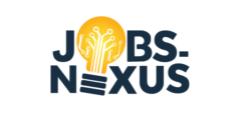You have worked hard for years to gain the skills and experience; finally you land an interview with a company in your dream job and…. The excitement is boiling under but a flicker of nerves seems to sneak in. You are going for longevity but how do you make sure that you are not lost among a sea of faces? In this first of a three-part series, here at Jobs-Nexus – your global job listings provider and career advice one stop shop – we help you prepare for an interview to land that dream job.
I. Preparing for Success
The key to any successful interview is preparation. Before entering the room for an interview: Do some research about the company.

- Understand the Company Culture and Recent News
Go through the company’s website and request them to connect with you on social media. Discover their mission, values and what they are currently working on… Among their innovative uses? Are their work-life balance principles transparent? Knowing the company culture helps you to mold your answers and show they would actually work.
- Identify Key Players in the Organization
Research the department you’re applying for and identify key players who might be involved in the interview process. This shows initiative and genuine interest in the team you’d be joining.
Develop a Strong Personal Brand
Yes, company research is important but so are you!
- Update Your Resume and Online Presence
Make sure that your resume and other online profiles (like LinkedIn) are updated to represent you and all of the skills, experience in a positive manner.
- Practice Your Elevator Pitch
Practice your elevator pitch – a concise summary of who you are and what you offer. This can be invaluable in introducing yourself effectively. Your elevator pitch: or in other words, if you needed 30 seconds to get people excited about what you do.
- Gather References and Recommendations
This is a good way to show your professionalism and work experience. Contact former employers or co-workers using Linkedin or networking events who can attest to your abilities and achievements.
Mastering Common Interview Questions
While interviews are a two-way street, some questions are typical. Behavioral are about past experience telling about future behavior. Typically asked questions like, “Talk about a situation when you had a challenging task at work and explain how you handled it?” Use STAR (situation, task, action, result) to structure your answer emphasizing your problem-solving experience. Technical questions are about technical components of the role. Make sure you have that knowledge. Situational questions are about work situations and dealing with them. “How would you address a conflict with a coworker?” shows how you think.
II. Nailing the Interview
First impressions matter!

Dress and Body Language
- Dress for Success: Dress professionally in attire that aligns with the company culture. When in doubt, opt for a smart and conservative look.
- Body Language Matters: Project confidence through your body language. Maintain good posture, make eye contact, and offer a genuine smile. Avoid fidgeting or slouching – these can convey nervousness.
Communication Skills
- Confidence is the key, but Communication is the king: Listen actively to the interviewer, complete their question, any act, and then respond. Don’t run a monologue, answer with strong verbs focusing on skills up to date. Answer the most relevant experience.
- Tough question? No problem!: Be ready for difficult questions. “Why did you leave your last job?” if answered with “they were horrible” would question hiring you. Be composed and calm,take a deep breath, and provide thoughtful responses that demonstrate your composure and problem-solving skills..
C. Handling Different Interview Formats
The interview landscape is ever-evolving. Be prepared for various formats:
- Phone and Video Interviews: Treat these with the same importance as in-person interviews. Dress professionally, find a quiet location with a good internet connection, and minimize distractions.
- Panel Interviews: With multiple interviewers, it’s important to maintain eye contact and address your responses to everyone present.
- Case Study or Presentation Interviews: These require additional preparation. Research common case studies relevant to the industry and practice presenting your solutions or proposals clearly and concisely.
III. Going the Extra Mile to Set Yourself Apart
The more thoughtful questions that you ask, the more it communicates your legitimate interest in the company and the role.
- Do Your Research & Be Prepared: Do not start asking questions that can be answered through the company’s website. Ask even more probing questions about their plans, the team dynamics, and what career growth looks like at their organization.
- Negotiating Salary & Benefits: Research the salary range of the particular position you are applying for. You should be able to negotiate your salary/benefits package and approach the negotiation with the utmost confidence – knowing you deserve what you are asking for.
C. Following Up After the Interview
Last but not the least, The work does not get over once you are done with the interview.
- Sending Thank You Notes: Minimum of 1 thank you note should arrive within the next 24 hours calling out your appreciation for what they do and reminding them how much good you could bring to this new role.
- Comments or Staying in Touch – You could ask if she would give you feedback on how you did today. It demonstrates you want to learn and improve. In addition, sending a thank you note after the interview, or staying connected through something as simple as LinkedIn is often seen as a sign of interest.
IV. Summary
- Recap of Key Points
Following these steps and utilizing the assets on Jobs-Nexus will put you in a prime position to demonstrate your abilities and self-assurance during interviews. Make sure to learn how to get interview skills which are a big part of being able to give to the interviewer and land your dream job. If you implement good preparation, communication, and performance that supports your interest in the job/internship you seek, then you will be on your way to unlocking a pathway of getting hired or selected for your dream career.
- Next Steps in Your Job Search Journey
There is numerous jobs posting and career counseling information available on Jobs-Nexus so fulfill your goals by exploring all the jobs listings, visit us today! Don’t stop here!
V. FAQs
- How do I overcome nerves before an interview?
Everyone gets nervous before interviews! Practice deep breathing and positive self-talk. Visualize yourself performing well and focus on your strengths and preparation.
- Is it appropriate to ask about salary during the first interview?
In the UK, it’s not customary to discuss salary during the first interview. However, researching salary expectations for the role is important. You might be able to broach the topic later in the interview process or during the negotiation stage after receiving a job offer.
- What should I do if I don’t hear back after the interview?
A polite follow-up email or phone call inquiring about the next steps is appropriate if you haven’t heard back within a reasonable timeframe (usually one week).
By following this comprehensive guide and utilizing the resources available on Jobs-Nexus, you’ll be well on your way to conquering your interview anxieties and landing that dream job you deserve!

